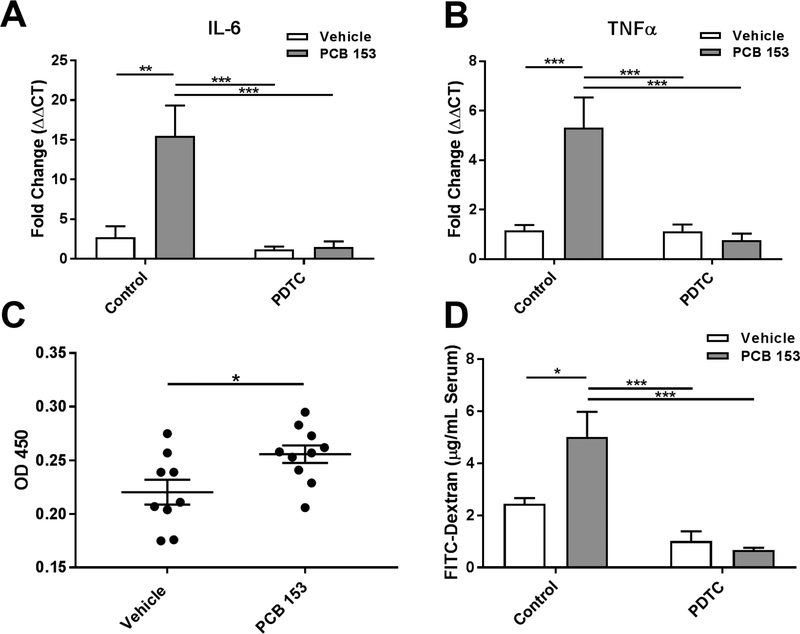Figure 1. PCB 153 causes NF-κB mediated intestinal inflammation and increases gut permeability.
Mice were orally exposed once per day to PCB 153 (300μmol/kg) or vehicle for 2 days, following IP injections of the NF-κB inhibitor PDTC or control (PBS).
(A.) IECs were isolated, RNA was extracted and RT-qPCR run for IL-6 and (B.) TNFα. N=5 mice per group. Two-way AVOVA with Tukey’s multiple comparison test. **P<0.01, ***P<0.001
(C.) IECs were isolated and the nuclear fraction was extracted. A NF-κB binding assay was performed. (N=9–10) Unpaired, two-tailed T test. *P<0.05
(D.) 4 hours prior to sacrifice, mice were orally gavaged with 60mg/100g body weight of FITC- dextran. At the time of euthanasia, serum was collected and levels of FITC-dextran were quantified. N=5 mice per group. Two-way AVOVA with Tukey’s multiple comparison test. *P<0.05, ***P<0.001

